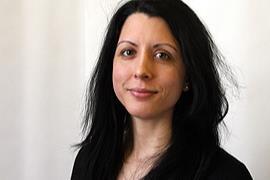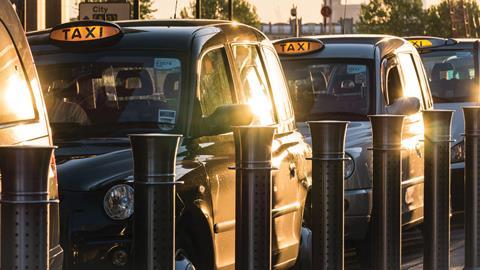The cab rank rule is handy when hailing little black buses in London, but it is an anachronism in the modern legal profession.

The lawyer’s lot these days is to get a bashing from the press, public and politicians. Since Russia’s invasion of Ukraine, the opprobrium has shifted from the lefty, do-gooder, activist variety – lawyers who were criticised for frustrating the home secretary’s efforts to remove migrants – and is now targeted at the ‘enablers’ and ‘white-collar collaborators’ working for Russian oligarchs to support and prop up the Kremlin and undermine sanctions, or threatening legal action to silence critics.
As the focus has changed, the classic dinner table query dreaded by all criminal lawyers – ‘how can you defend the guilty?’ – may have become ‘how can you act for a Russian oligarch?’
Both questions look to determine the moral nature of the barrister’s job. The first question is perhaps easier to answer by explaining the defence barrister’s role in representing a client, leaving the decision of guilt or innocence to judge or jury, along with the explanation of their overriding duty not to mislead the court.
This means that, on the rare occasion that a defendant confesses guilt to a brief, the barrister can advance no positive case to the court or put their client in the witness box, but only test the prosecution evidence.
In theory, the cab rank rule covers both scenarios. It is the rule that obliges barristers to take the next case that comes along that they are free and competent to do, and for which they are offered an adequate fee.
The rule covers criminal and civil work and means that barristers cannot refuse to act because the client, their conduct, opinions or beliefs, or the nature of their case is objectionable or unacceptable to the barrister or the public.
In reality, and particularly since the drastic cuts to legal aid, many people are left to represent themselves without a lawyer. And some barristers already take an ethical position in refusing to prosecute or act for the Home Office. Others pride themselves on being campaigners or espousing certain causes. Many have added the moniker ‘lefty lawyer’ to their Twitter handles.
It is often said that the cab rank rule is honoured more in the breach than the observance. Self-employed barristers can easily find that their diary is booked and they are not available to take on certain cases.
Barristers are guided by ethical principles and their code of conduct, and must act with honesty and integrity. They have a ‘duty not to behave in a way that would be likely to diminish the trust and confidence that the public places in them or their profession’.
The general public may find it hard to reconcile those principles with what appear to be the morally bankrupt clients that barristers act for: wealthy individuals whose assets have been acquired in dubious circumstances and allegedly been used to fund the war chest of an autocrat who has invaded a sovereign country and is killing civilians and committing war crimes.
Speaking to The Times last week, Anna Ogrenchuk, the president of the Bar Association of Ukraine, was clear that all UK lawyers should stop acting for Russian clients – in any capacity. ‘By acting for these clients, UK and US lawyers have helped Putin commit crimes,’ she said.
As Russian forces devastate Ukraine, her plea is compelling. But speaking at a service for Ukraine in Temple Church, chair of the Bar Council Mark Fenhalls QC had an equally uncompromising message. He criticised those who have been ‘very quick and wrong to criticise solicitors and barristers for being facilitators and enablers, and somehow complicit in what has gone wrong with the Russian regime’ and insisted that UK lawyers operate under the ‘truly precious’ rule of law that permits people to enforce their rights. Lawyers ‘will continue to act within the terms of those rules, offering representation’.
There are already exceptions to the cab rank rule. It does not apply to instructions from outside the jurisdiction. As for acting for parties or countries whose legal system is not in line with the rule of law, barristers are permitted to exercise their discretion.
But members of the England and Wales bar have frequently shown their willingness to act for unsavoury companies and despotic rulers before foreign courts. They can also refuse work in cases where the fee is inadequate. Why is it thought to be more defensible to refuse a case based on the fee, than it is to refuse it based on the morality?
To reiterate, under the cab rank rule barristers are obliged to act for the next client that comes along, within the limits of the law and professional codes of practice. But, as we see from the government’s move to crack down on strategic lawsuits against public participation – so-called SLAPPs – the sands are shifting on what is considered to be within the limits of law.
Aside from in criminal cases, where the need for cab rank is arguably more understandable, barristers should decide for themselves to whom they will sell their services. It would be better – and certainly more honest – to leave the cab rank to the taxis and enable barristers to have the courage of their convictions.
Catherine Baksi is a freelance journalist and qualified barrister
































4 Readers' comments